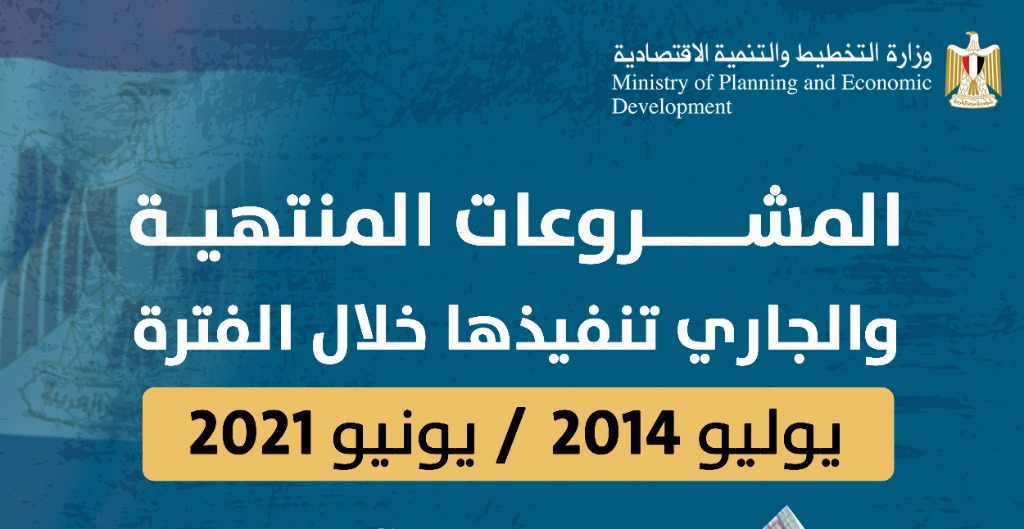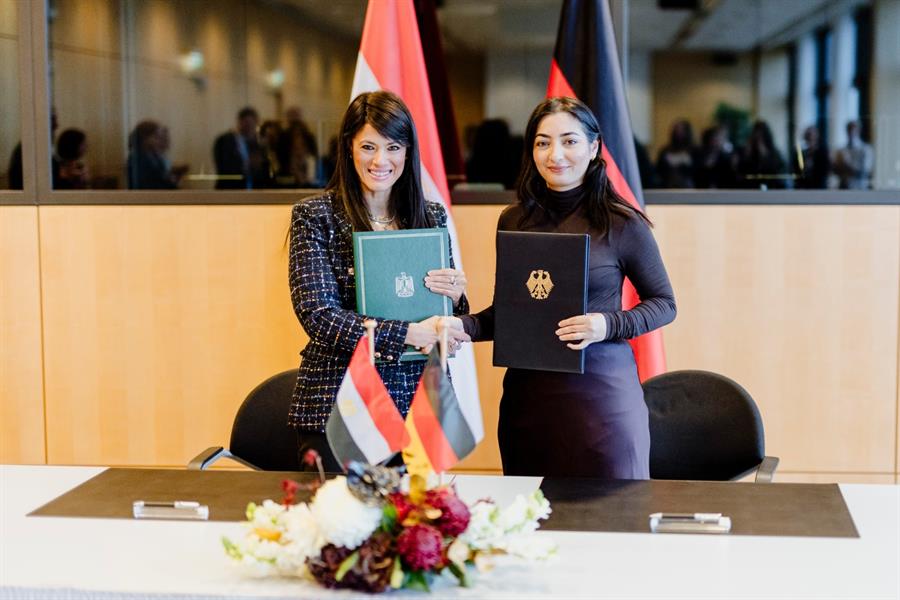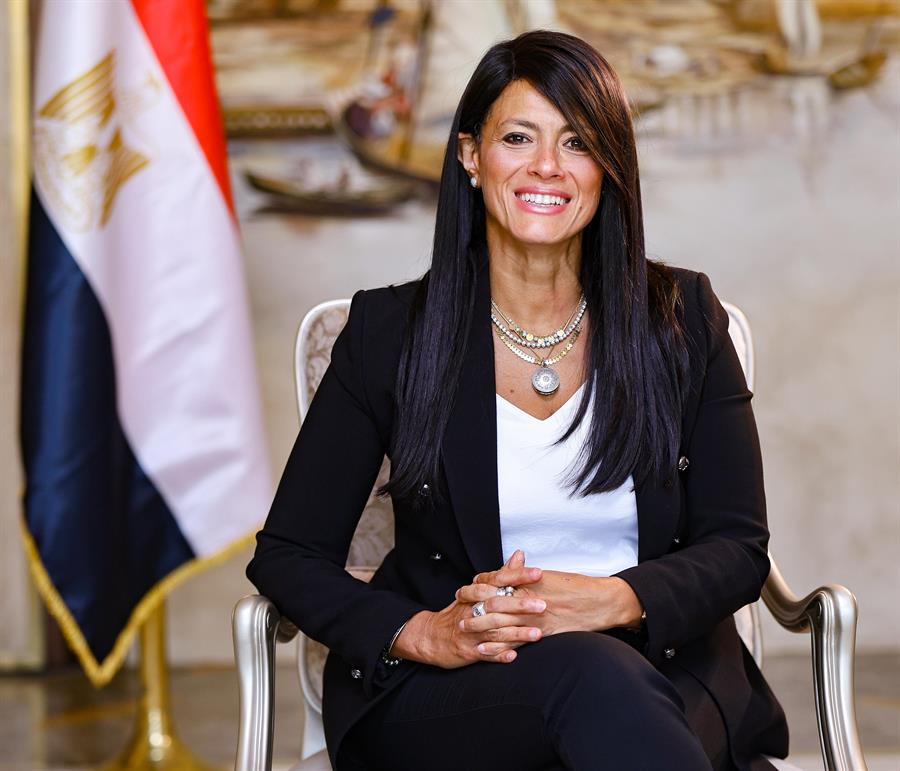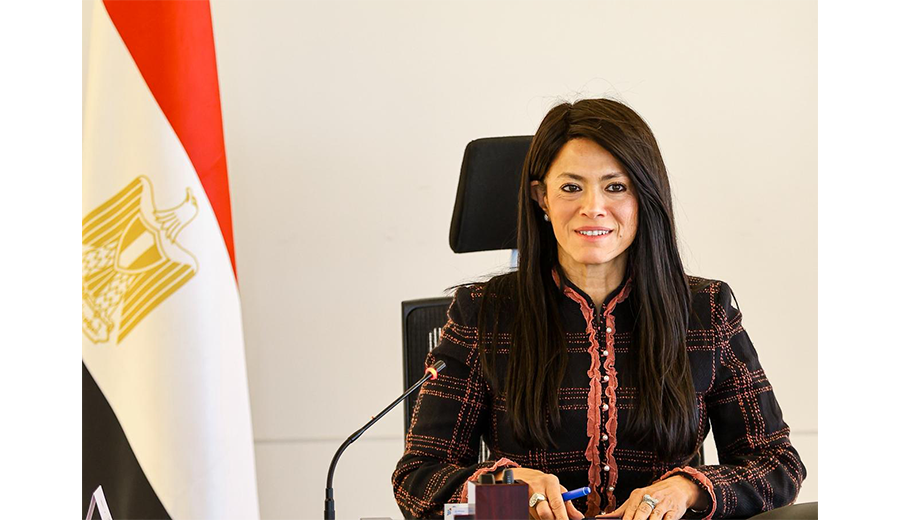Egypt implements EGP 4.4trn in ongoing projects between 2014 and 2021: Planning Minister

30 June 2021
Egypt’s Minister of Planning and Economic Development Hala El-Said has revealed that EGP 4.4trn has been invested in ongoing projects during the period from July 2014 to June 2021.
She stressed the interest the state attaches to investing in national and development projects in various sectors, intending to make a qualitative leap, whose first objective is to lay the foundations of construction, development, and stability.
El-Said’s remarks came on the occasion of Egypt’s celebration marking the 30 June Revolution, in which she confirmed that the revolution expressed the free choice of the Egyptian people. It also wrote a new chapter in the political history of the Egyptian nation, was also the beginning of a great economic and social renaissance.
El-Said added that during the period between July 2014 and June 2020, projects worth EGP 2.4trn were completed in 22 sectors across Egypt. This was in addition to the investment plan for fiscal year (FY) 2020/21, including public investments whose total cost exceed EGP 2trn.
This Has resulted in many achievements, most notably the improvement in Egypt's ranking in international competitiveness indicators.
The minister indicated that the petroleum and mineral wealth sector topped the sectors during the same period, in terms of the total cost of implemented projects, amounting to EGP 1.2trn.
The most important of these projects is the Zohr field development project, with a production capacity of 2.7 billion cbm/day, in addition to the development of the northern fields Alexandria and West Nile Delta (the second phase of the Giza and Fayoum fields). The latter project has a production capacity of 0.7 billion cbm / day.
Also of importance is the 128 km long Nawras / Abu Al-Mady / El-Gamil gas pipeline, and the establishment of the Egyptian Refining Company’s Mostorod refinery, with a production capacity of 4.7 million tonnes of petroleum products annually. Importance has also been placed on the development of the West Delta fields in the deep waters of the Mediterranean Sea Phase (9B), with a capacity of 350 million cbm/day. These projects resulted in achieving self-sufficiency in natural gas and connecting it to about 5 million housing units.
In the electricity sector, the total cost of the implemented projects amounted to EGP 403bn, the most important of which is the addition of 650 MW from the South Helwan steam power plant, which has a capacity of 1,950 MW.
A further project implemented is the establishment of 12 stations in Benban, Aswan Governorate, with a capacity of 485 MW, as well as the establishment of a photovoltaic cell station in Kom Ombo with a capacity of 26 MW in Aswan Governorate. Additionally, a wind station in the Gulf of Suez, with a capacity of 250 MW, was established. As a result of these projects, Egypt’s ranking in the electricity access index increased from 145 in 2015 to 77 in 2019.
The cost of the projects implemented in the housing sector and the development of slums amounted to about EGP 225bn. The most important of these projects was the establishment of 417,000 social housing units, 182,000 housing units to house residents of dangerous, unsafe, and unplanned areas, in addition to the benefit of 586,000 citizens from the development of slums during the past two years.
This is in addition to increasing the production capacity of drinking water projects by 7.7 million m 3 / day, and 3.8 million m 3 / day for sewage projects. These projects have resulted in an improvement in Egypt’s ranking in the global competitiveness report (infrastructure axis), from 114 in 2014 to 52 in 2019.
Concerning the transport sector, projects worth EGP 117bn have been implemented, the most important of which is the Wadi El-Natrun/Al-Alamein Road, the Upper Red Sea (Sohag/Safaga) Road, the duplication of the Mansoura/Tanah/Dakirnis Road in Daqahleya Governorate, and the Cairo-Suez Road.
Other projects here include the duplication of the Western Desert Road between Assiut and Sohag, with the length of the paved roads reached about 9200 km. This resulted in an improvement in Egypt’s ranking in the road quality index from 118 in 2014 to 28 in 2019.
In the health and pre-university education sectors, the value of the implemented projects amounted to about EGP 51bn, which resulted in the establishment, replacement, and expansion of 67,000 classes at all educational levels across Egypt.
This also saw the establishment and development of 393 hospitals and 104 health units, as well as family medicine centers during the past two years.









